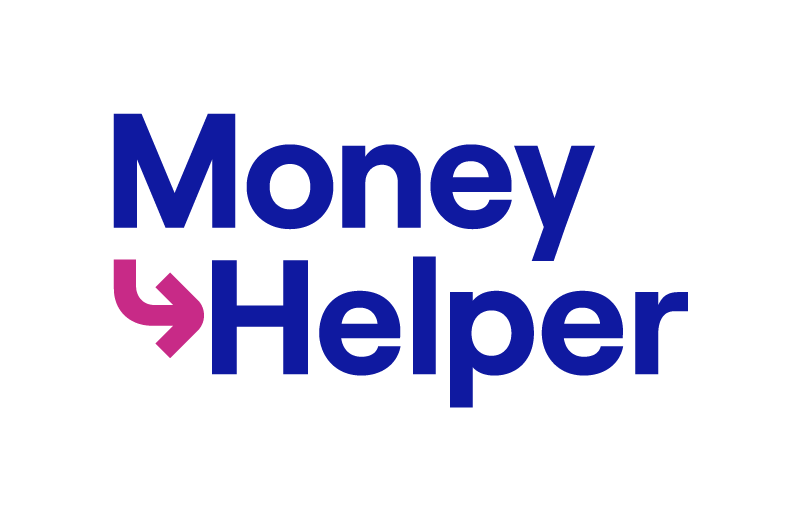All about IVAs
All about IVAs
An IVA is designed to help you clear all the unsecured debts you can't afford – such as personal loans, credit and store card debts. It'll have an impact on your credit rating, but can help you avoid bankruptcy, as long as you uphold your side of the agreement.
Backed by legislation, an IVA can only be set up by a licensed Insolvency Practitioner (IP). If your proposal is accepted, your creditors will freeze interest and charges and write off any remaining unsecured debt when your IVA is completed. The lenders who own 75% of your unsecured debt would have to agree to it before it can go ahead.
An IVA normally lasts for five years, during which time you will make an agreed monthly payment towards your debt. Providing you stick to the terms, you'll have settled those debts at the end of your arrangement. There is a risk of bankruptcy if you don't stick to these terms and your IVA doesn't succeed. But we work with our clients to ensure their IVA is suitable for them and sets them payments they can afford, which helps them make all their payments.
How long does an IVA last?
Some debt solutions last as long as they need to - as long as it takes to repay everything you owe.
An IVA isn't like that. You and your lenders will agree on the length of your IVA before it even starts. In most cases, it'll last for five years - or six years if you are unable to release equity and need to make extra payments instead.
As long as you've repaid what you said you would in that time, that'll be it - the remaining debt included in your IVA will be written off.
So an IVA's predictable - but that doesn't mean it's inflexible. Your lenders know that your finances could change over a five-year period, and that unexpected changes can make it difficult to stick to the terms you agreed when your IVA was starting.
Say you were hit with some serious expenses that meant you mas't afford your IVA payments for a few months. Remember your IP is there to negotiate with your lenders and try to find a way to make sure your IVA succeeds. Rather than let it fail, your lenders might simply let you take a 'break' in your payments - so if you couldn't afford your payments for three months, for example, you'd make three more monthly payments after the date your IVA was actually due to finish. If your IVA were to fail, there is the risk that you could be made bankrupt, so your IP is there to help make sure that doesn't happen.
If you're wondering how any changes might work out, call one of our experts on 0161 672 8990 or fill out our contact form.
The difference between IVAs & bankruptcy
IVAs offer some serious advantages over bankruptcy, but bankruptcy is sometimes the better choice - it depends which is right for you. Either way, you'd be entering insolvency, which would show up on the publicly available Individual Insolvency Register.
In general, people with a reasonable amount of disposable income may be better off considering an IVA if they own property and can commit to making regular payments for the next five years. This is vital, as there is the risk that you could be made bankrupt if your IVA were to fail.
People who don't think they can commit to regular payments and don't own any valuable assets might be recommended to enter bankruptcy.
Find out more about the differences between IVAs and bankruptcy.
I'm a homeowner - would I lose my home?
Your home will never have to be sold although you might have to release some equity from your home if you're a homeowner, so you can pay more in to your IVA, and your IVA's impact on your credit rating might mean a new mortgage is harder to find (and potentially more expensive). If you can't release equity, you might have to make up to 12 more payments into your IVA instead. However you'd be very unlikely to have to sell your home in an IVA as long as you keep on making your mortgage payments.
In fact, your IVA should make it easier for you to stay on top of your mortgage and avoid falling into arrears, since your IVA payments would be calculated to leave you with enough to cover your mortgage payment (and other essentials) every month.
If you entered bankruptcy, on the other hand, you'd have to release any equity over £1,000 - and you might be forced to sell your home.
If you're worried about the impact of an IVA in any way, please get in touch and we can answer all your questions.
How much would an IVA cost me?
The point of an IVA is that your monthly payments are affordable - that you should be able to make your payments without drawing on the funds you really need to keep so you can pay for life's essentials, from food and utility bills to mortgage/rent payments.
Equally important, your payments might be able to change if your circumstances took a turn for the worse. If your income dropped or your essential expenses increased, your IP might be able to negotiate an IVA Variation. This is an official (and legally binding) change to the terms of your IVA, which would have to be approved by enough of your lenders, as your original IVA proposal was.
Your IP might propose, for example, that you're allowed to make smaller monthly payments for the rest of your IVA, but make them for longer, so your lenders receive the same kind of return.
If you failed to meet your IVA commitments, you could be at risk of bankruptcy, so it's good to know that your IP can support you in making changes.
It's in your lenders' interests as well as yours to try and make sure your IVA succeeds, so if they think it's a reasonable change (and gives your IVA the best chance of success) they're very likely to approve.
Bear in mind that there are fees payable when you enter an IVA with us. You can see how these fees work on our key information and fees page.
See a more in-depth look at the costs involved in an IVA.
On a Freeman Jones IVA there are a team of Relationship Managers waiting to take your calls and give you information and advice.
Is an IVA right for me?
Complete the form and a friendly advisor will call you back to discuss the best way forward.

To find other sources of free advice visit Money Helper. It's here to listen and give free, impartial, trusted guidance. Based around you and backed by government.

It's good to know:
- We negotiate with the UK's major lenders and retailers
- We pride ourselves on our approach to great customer service
- Each month 1000s of people are benefiting from our help
Subject to eligibility and acceptance. Fees Payable. Debt write off applies to unsecured debts only and on completion of an IVA, alternative solutions may be offered. If your IVA fails, it could lead to Bankruptcy. Your ability to obtain credit will be affected for at least 6 years. Homeowners may be required to release the equity in their property.